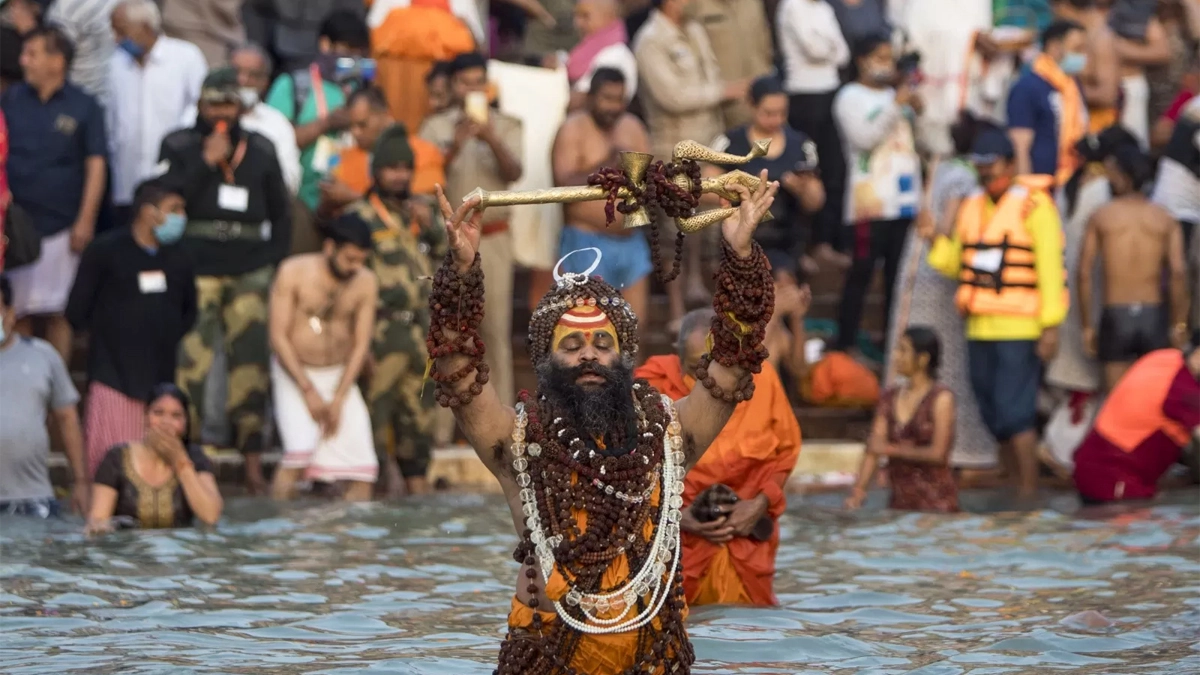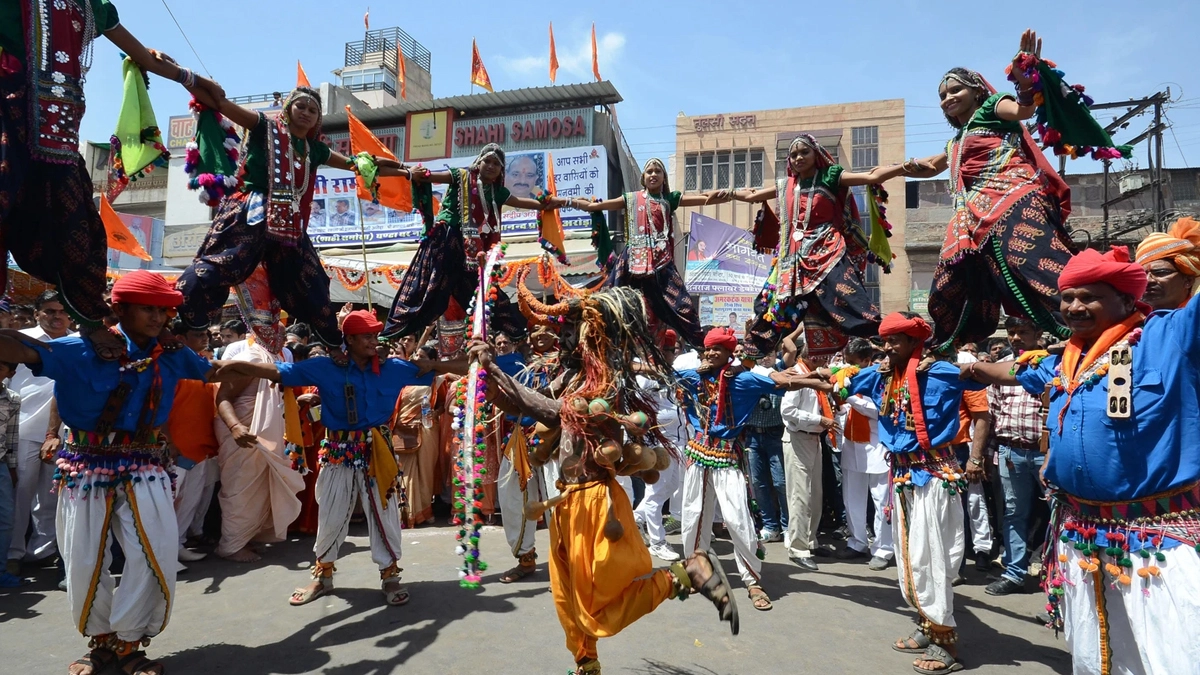
Purification and Spiritual Renewal: Ritual Bathing during Ram Navami
A holy custom associated with purification and spiritual rebirth is ritual washing, or “Snana,” on Ram Navami. As they are ready to submerge themselves in holy waters, devotees cleanse their bodies and thoughts. In order to get blessings from Lord Rama, devotees congregate at bathing ghats or other hallowed pools of water, where they submerge themselves in the heavenly waters while reciting hymns and mantras. Taking a bath helps one to become more spiritually elevated and at peace with themselves by eliminating sins and impurities from their soul. A time-honored custom, ritual washing on Ram Navami strengthens believers’ relationship with God and fills their hearts with reverence and passion.
The Tradition of Ritual Bathing
Ritual bathing is a very spiritual practice that dates back to ancient Hindu customs. On auspicious occasions such as Ram Navami, devotees meticulously prepare themselves by washing their bodies and minds before submerging themselves in holy waters. Ritual bathing is a symbol of spiritual rebirth and cleansing; it cleanses the body of impurities and sins, promoting inner tranquility and spiritual elevation. Devotees seek spiritual growth and connection by invoking blessings from the almighty through chants, prayers, and immersion in holy waters. Ritual bathing is an age-old custom that enhances believers’ respect and devotion to the holy by providing them with purity and divine favor on their spiritual path.
Preparation of Ritual Bathing
Before a holy immersion, ceremonial bathing preparations are made with great care; this is especially true on Ram Navami. The bodies and minds of devotees are purified through both physical and mental purification. They get up early, dress traditionally, and get ready for a spiritual retreat. Introspection, meditation, and prayer are all part of the mental preparation process; they purify the mind and the goals. The holy act is set in motion by this painstaking preparation, which guarantees that devotees approach it with reverence and dedication. During the auspicious occasion of Ram Navami, devotees prepare themselves to submerge in divine grace by preparing for ritual bathing. They seek blessings from the divine, as well as purification and spiritual renewal.
The Ritual Bathing Process
One of the holy customs observed on important Hindu holidays, such as Ram Navami, is ceremonial washing. Followers cleanse their bodies and thoughts as they painstakingly get ready. At authorized bathing locations, which are frequently found next to rivers or other hallowed bodies of water, they chant prayers and immerse themselves in the holy waters. This action is a sign of calling forth divine blessings, washing away sins, and purifying the soul. Spiritual rebirth and a close relationship with the divine are fostered by the procedure, which is conducted with great care and dedication. A timeless custom that enhances spiritual growth and bestows upon believers a divine gift and inner cleanliness is ritual bathing.
Symbolism of Ritual Bathing
Hinduism is a very spiritual religion, and ritual bathing during Ram Navami has significant symbolic meaning. Immersion in holy waters represents the washing away of sins and pollutants from the body, mind, and soul. The deed promotes inner renewal and progress and symbolizes a spiritual rebirth. It is thought that the holy waters have the ability to transform, giving the devotee blessings and heavenly favor. Bathing in rituals represents giving up control to the divine will as devotees fully immerse themselves in Lord Rama’s presence. On this auspicious occasion of Ram Navami, it is a profound statement of reverence and devotion that strengthens the relationship between the believer and the almighty.
Spiritual benefits of Ritual Bathing
Purification of Body, Mind, and Soul:
Ritual bathing symbolizes the cleansing of impurities at physical, mental, and spiritual levels. It serves as a means to wash away sins and negative energies, facilitating a fresh start on the spiritual journey.
Spiritual Renewal and Rejuvenation:
Immersion in holy waters offers inner peace, tranquility, and spiritual rejuvenation. Devotees emerge feeling spiritually refreshed, ready to embrace their spiritual path with renewed vigor.
Reception of Divine Blessings:
The holy waters are believed to carry divine blessings and transformative energies. Through ritual bathing, devotees invoke blessings from deities, receiving divine grace and guidance.
Deepening Connection with the Divine:
Ritual bathing strengthens the bond with the divine, fostering deeper devotion and surrender. Immersion facilitates a profound communion with divine presence, enhancing the spiritual connection.
Inner Transformation and Growth:
It signifies symbolic death and rebirth, facilitating inner transformation and growth. Devotees emerge with clarity and insight, embodying divine virtues in their lives.
Overall, Ritual bathing during Ram Navami provides devotees with purification, renewal, divine blessings, deepened connection with the divine, and inner transformation, enriching their spiritual journey and fostering spiritual growth
Community Aspects of Ritual Bathing
As part of the community ritual washing that occurs during Ram Navami, devotees’ spiritual experience is further enhanced. A group of devotees participate in the holy ritual and communal devotion to Lord Rama while washing at ghats, or holy bodies of water. Mantras and hymns are chanted, creating a unified and harmonious mood among devotees. The atmosphere is packed with spiritual energy. Strengthening the spiritual tie within the group, the communal aspect fosters a sense of belonging and friendship. The communal experience of devotion during Ram Navami is enhanced when ceremonial bathing is performed in the company of other devotees, strengthening one’s spiritual bond with the almighty.



